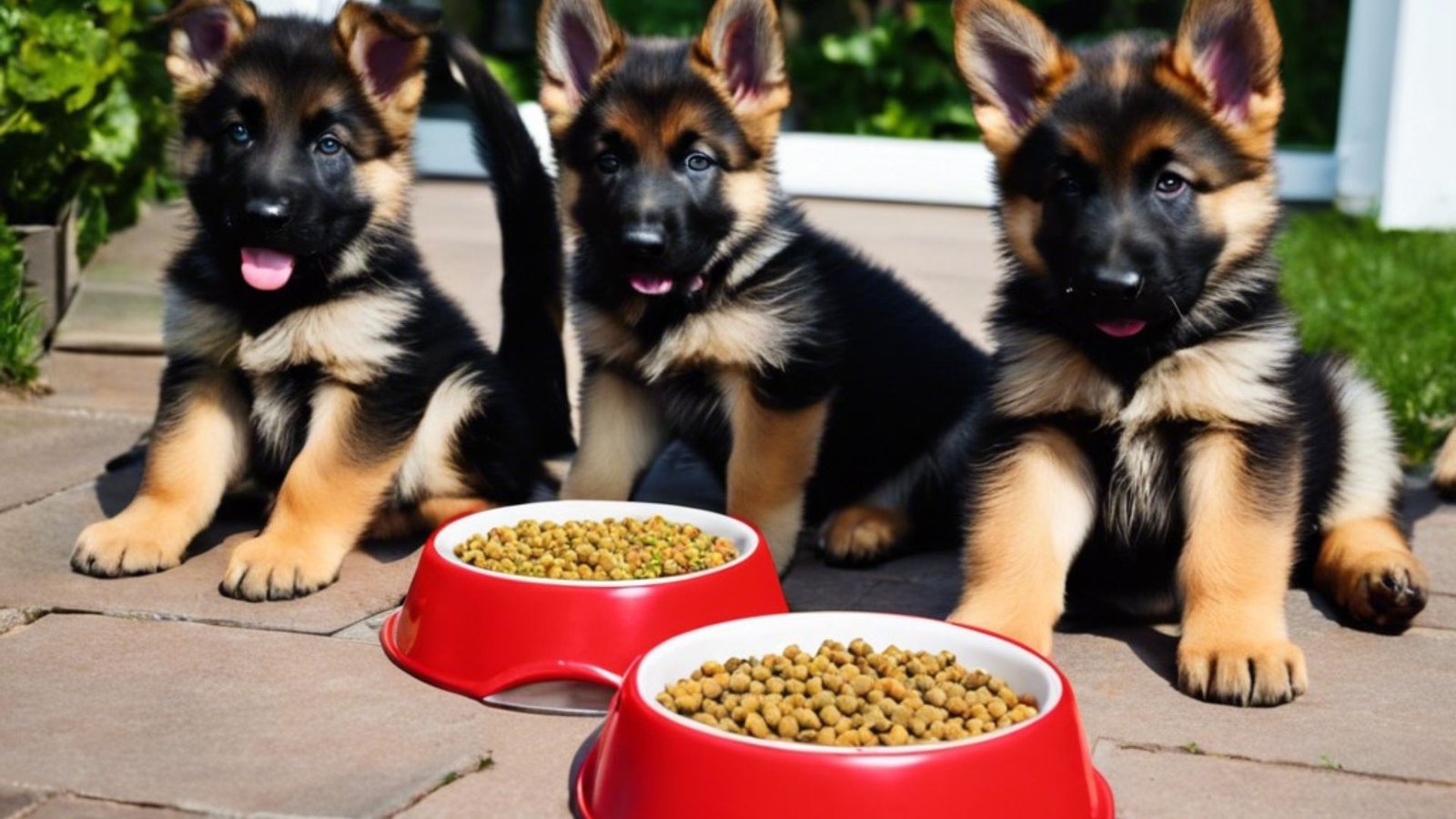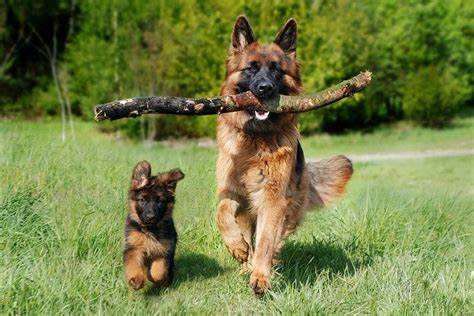Feeding Guide for German Shepherds
German Shepherds are a large, active breed with specific nutritional needs. To keep them healthy, energetic, and strong, it’s essential to provide them with a balanced diet that supports their growth, maintenance, and overall health. Whether you have a playful puppy, an adult working dog, or a senior German Shepherd, the right food and feeding schedule can make a significant difference in their well-being. This comprehensive feeding guide will walk you through the best practices for feeding your German Shepherd at every stage of life, from puppyhood to their senior years.

Nutritional Requirements for German Shepherds
German Shepherds require a diet that includes a balance of proteins, fats, carbohydrates, vitamins, and minerals. Here’s a breakdown of each nutrient’s role:
- Protein: Essential for muscle development, repair, and overall growth. German Shepherds need high-quality animal-based proteins (like chicken, beef, or lamb).
- Fat: Provides energy and supports skin and coat health. Healthy fats from sources like fish oil or chicken fat are ideal.
- Carbohydrates: While not as crucial as protein, carbs from vegetables or whole grains provide energy and help with digestion.
- Vitamins and Minerals: Necessary for immune function, bone health, and overall growth. Look for dog foods that include a balanced blend of nutrients.
Feeding German Shepherd Puppies
Age: 8 Weeks to 6 Months
German Shepherd puppies are growing rapidly, so they need a nutrient-dense diet with a higher calorie content to support their development.
- Protein: Look for foods with 20-30% protein to support muscle growth and energy needs.
- Fat: Puppy foods should contain around 8-15% fat to help support their growth and energy levels.
- Special Puppy Formula: Choose a puppy food specifically designed for large breeds. These formulas help prevent rapid growth that could lead to joint issues later in life.
Feeding Schedule for Puppies
- 3-4 Meals per Day: During the first few months, divide the daily amount of food into 3 to 4 smaller meals to avoid overloading their digestive system.
- Portion Size: Follow the recommendations on the food package, adjusting based on your puppy’s weight and activity level.
Feeding Adult German Shepherds
Age: 1 to 7 Years
Once your German Shepherd reaches adulthood, they require a balanced diet that maintains their health and energy levels without leading to excessive weight gain.
- Protein: Adult German Shepherds need 18-25% protein, depending on their activity level. Active dogs or working dogs might need higher protein content.
- Fat: Look for a diet containing 8-15% fat, which will help keep them energized without contributing to excess weight.
- Fiber: A balanced fiber content (about 3-5%) is essential for healthy digestion.
Feeding Schedule for Adults
- 2 Meals per Day: Feed your adult German Shepherd twice daily, typically in the morning and evening. This helps prevent bloating, which is a concern for deep-chested breeds.
- Portion Size: The portion size will vary based on your dog’s size, activity level, and the specific food you’re using. A typical adult German Shepherd might need between 1,500 and 2,500 calories per day, depending on their metabolism.
Feeding Senior German Shepherds
Age: 7+ Years
As German Shepherds age, their metabolism slows down, and they may become less active. Senior dogs need a diet tailored to their changing needs to maintain a healthy weight and support joint health.
- Protein: Look for a senior dog food with 18-25% protein. Senior dogs still need protein for muscle maintenance, but excessive protein can strain their kidneys, so balance is key.
- Fat: Fat content should remain at 8-12% to prevent obesity, as senior dogs are less likely to burn off excess calories.
- Joint Support: Foods containing glucosamine and chondroitin are important to support aging joints and prevent or manage arthritis.
Feeding Schedule for Seniors
- 2 Meals per Day: Continue feeding your senior German Shepherd twice a day, but adjust portion sizes to account for their lower activity level.
- Portion Control: Monitor their weight closely and adjust portions as needed to avoid obesity. Overfeeding can lead to joint strain, especially in large breeds like German Shepherds.
Conclusion
Feeding your German Shepherd the right diet at each stage of their life is crucial for their health and well-being. From high-protein puppy food to joint-supporting senior formulas, adjusting their diet to suit their age, activity level, and health needs will help them live a long, happy life. Always consult with your veterinarian to ensure you’re meeting your dog’s specific nutritional requirements and make any necessary adjustments based on their health status. A well-fed German Shepherd is a happy, healthy companion.








